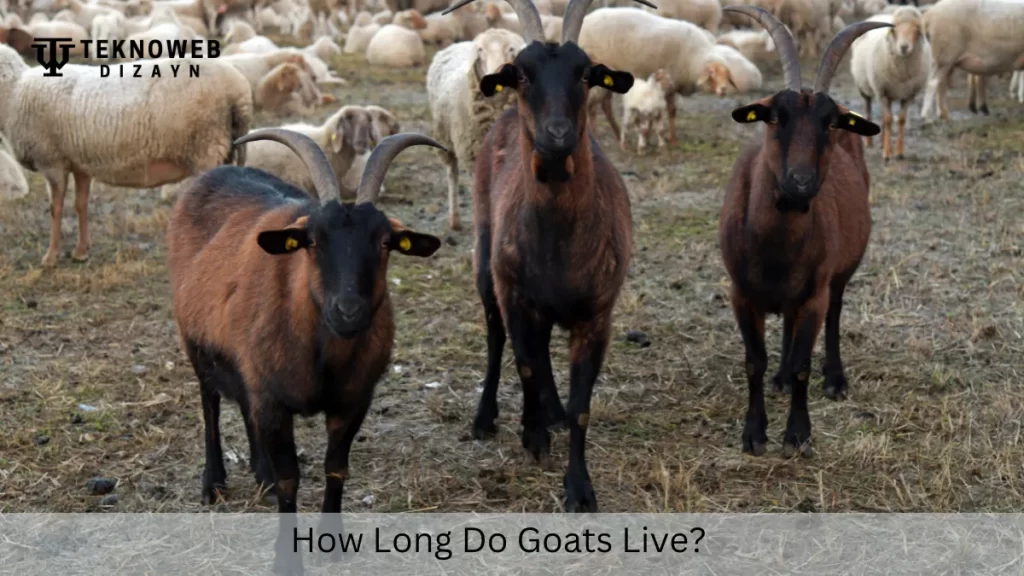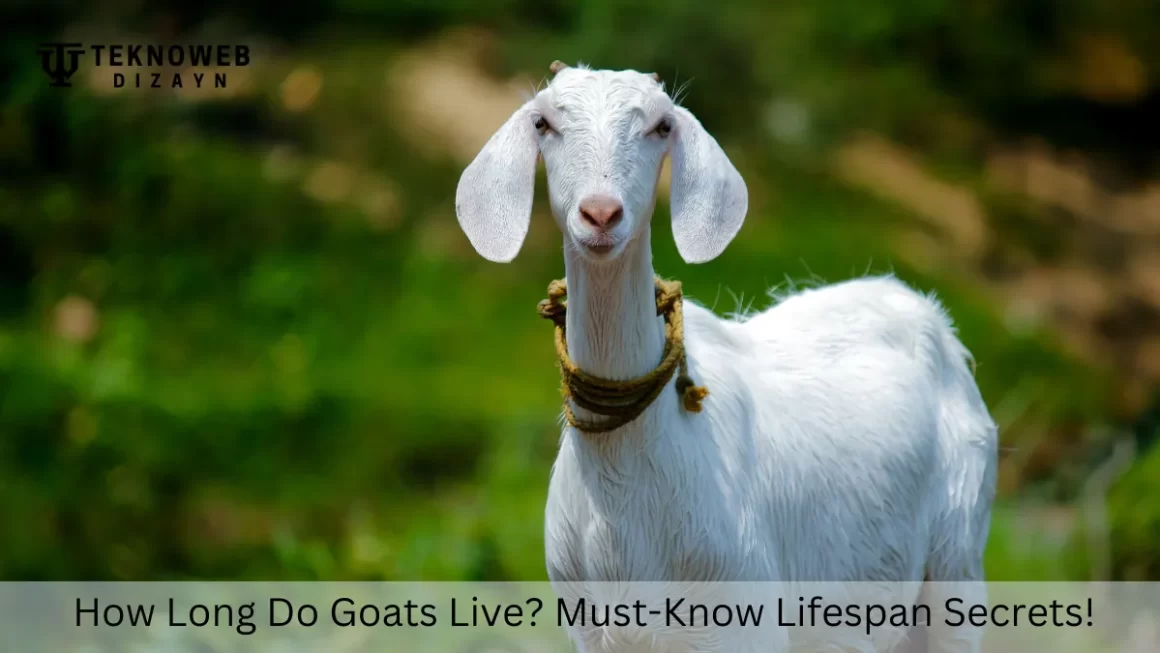Table of Contents
If you’re considering raising goats, you may wonder, “How long do goats live?” You can better prepare for a goat’s care and guarantee a happy, healthy life if you know how long they typically live. Goats are friendly, curious animals that can be a delightful addition to a farm or homestead. However, their lifespan can vary depending on breed, environment, diet, and overall care. In this article, we’ll uncover the secrets to a goat’s lifespan, discuss factors that influence it, and provide tips to help your goats live longer.
The Average Lifespan of Goats

So, how long do goats live? On average, domestic goats live between 10 and 15 years. However, some goats can live longer with excellent care and proper nutrition. The lifespan of a goat can also vary depending on the breed. Here’s a quick look at the average lifespan of different types of goats:
- Dairy Goats: 8-12 years
- Meat Goats: 5-8 years
- Pet or Companion Goats: 12-15 years
- Wild Goats: 9-12 years (due to natural predators and harsher conditions)
Understanding these averages is essential for prospective and current goat owners, as it helps you plan for their long-term care.
Factors That Affect How Long Goats Live
While genetics play a part in how long goats live, several other factors also influence their lifespan. Let’s dive into some of these key elements.
Breed
Different breeds of goats have different lifespans. For instance, dairy breeds like Nubians or Saanens typically live longer than meat breeds like Boer goats. Pet or miniature breeds, like Nigerian Dwarf goats, often have a longer lifespan due to their smaller size and lower physical demands.
- Tip: When choosing a breed, consider its lifespan, care needs, and compatibility with your environment.
Nutrition
Proper nutrition is vital to a goat’s health and longevity. Goats require a balanced diet that includes hay, grains, and fresh water. Lack of essential nutrients can lead to health problems and reduce their lifespan.
- Tip: Ensure your goats access fresh hay, clean water, and mineral supplements. This will support their immune system and overall health.
Living Conditions
Goats need a safe and comfortable environment to thrive. Protection from extreme weather, predators, and unsanitary conditions is crucial for their well-being. Poor living conditions can lead to stress and disease, shortening their lifespan.
- Tip: Provide shelter, fencing, and a clean living space for your goats. A stress-free environment helps them stay healthy and live longer.
Healthcare and Regular Checkups
Routine veterinary care, vaccinations, and deworming are essential to a goat’s health. Frequent examinations can help identify health problems early on before they worsen.
- Tip: Schedule regular vet visits for your goats, and keep up with vaccinations and parasite control to prevent common goat illnesses.
Social Interaction and Mental Stimulation
Goats are social animals and thrive in groups. Isolation can lead to loneliness and stress, affecting their overall health. Providing mental stimulation and companionship helps them stay happy and healthy.
- Tip: Keep goats in pairs or groups, and provide enrichment like climbing structures or toys to keep them engaged.
Also Read: How Can the Second Empire Style Be Characterized? Unveil Its Lavish Secrets
Common Health Issues That Affect Goat Lifespan
Understanding how long goats live also means knowing the common health issues that may shorten their lifespan. Here are a few diseases and conditions that often affect goats.
Parasites
Internal and external parasites, such as worms and mites, are common in goats and can cause significant health issues if not controlled. Regular deworming and good hygiene are key to preventing parasite-related diseases.
- Tip: Rotate pastures and maintain a clean environment to reduce parasite exposure. Regular faecal tests can also help monitor parasite levels.
Respiratory Infections
Goats can be prone to respiratory infections, especially in wet or cold weather. Coughing, nasal discharge, and difficulty breathing are signs of respiratory issues that need prompt veterinary care.
- Tip: Provide adequate ventilation in their shelter and avoid overcrowding, which can help prevent the spread of respiratory illnesses.
Foot Rot and Hoof Problems
Goats need regular hoof trimming to prevent hoof problems like foot rot. Damp or muddy conditions can worsen hoof issues, leading to pain and mobility problems.
- Tip: To prevent foot problems, trim your goats’ hooves regularly and keep their living area dry and clean.
Bloat and Digestive Issues
Bloat is a dangerous condition in goats caused by gas build-up in the stomach. It can occur due to sudden changes in diet or overeating grains. Recognizing the signs of bloat and acting quickly can save your goat’s life.
- Tip: Introduce new foods gradually and avoid overfeeding grains. Providing roughage like hay helps maintain a healthy digestive system.
Also Read: How Long Do Goats Live? Must-Know Lifespan Secrets!
Tips to Help Your Goats Live Longer

Now that we know how long goats live and what affects their lifespan let’s look at some practical tips to help you maximize their lifespan.
- Feed a Balanced Diet: A balanced diet rich in fiber, vitamins, and minerals is essential for your goats’ health and longevity.
- Keep Their Living Space Clean: A clean environment reduces the risk of infections and diseases, contributing to a longer, healthier life for your goats.
- Provide Companionship: Goats are happier and healthier when they have companions. Keeping them in pairs or groups helps reduce stress and promotes mental well-being.
- Ensure Regular Health Checkups: Regular vet visits allow you to monitor your goats’ health and catch any potential issues early.
- Exercise and Enrichment: Goats are active animals. Giving them enough space to roam and play, as well as toys and climbing structures, helps keep them physically and mentally fit.
By following the tips in this article, you can ensure that your goats live happy, healthy lives, enriching your farm or homestead for years.




